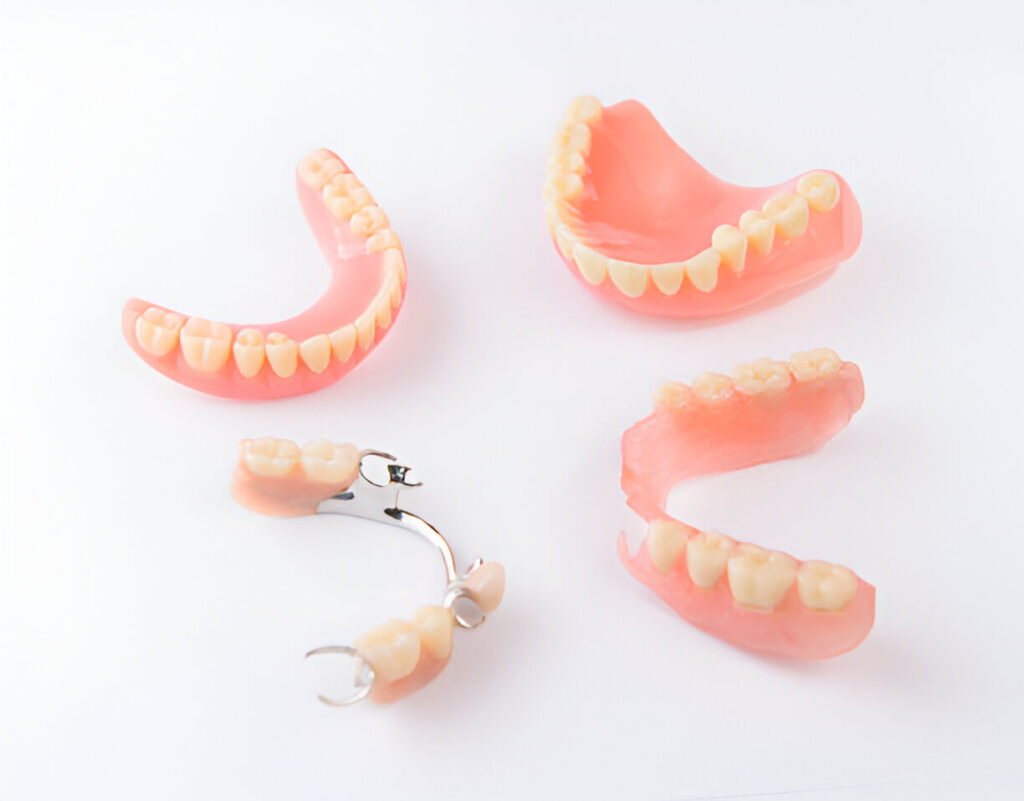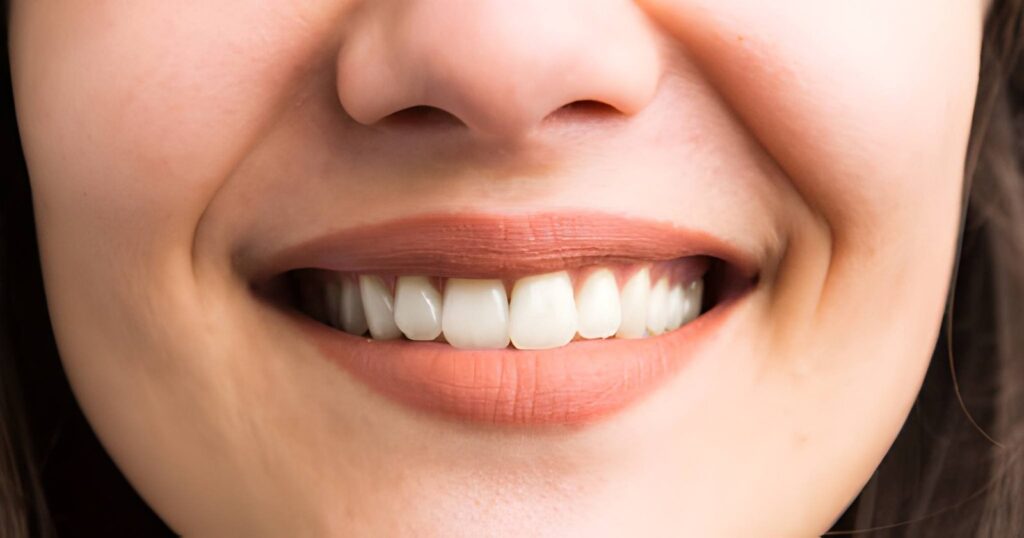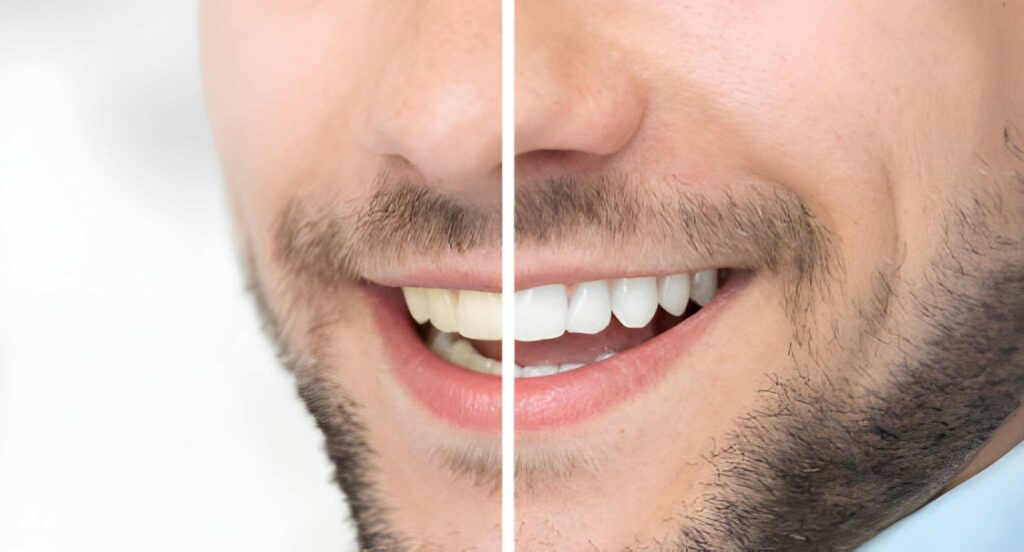Dentures are a popular option for people who have lost their natural teeth. They help restore the ability to eat, speak, and smile with confidence. But what are dentures made of? In this article, we’ll break down the materials used in dentures and explain the different types of dentures available. This will help you understand what’s inside the dentures that fit so comfortably in your mouth.
What Are Dentures?
Dentures are removable dental appliances used to replace missing teeth. They are designed to look like natural teeth and gums, helping people regain normal mouth functions. There are two main types of dentures: full dentures, which replace all teeth on the upper or lower jaw, and partial dentures, which replace a few missing teeth. Dentures are custom-made to fit each person’s mouth perfectly, providing a comfortable and secure fit. For those seeking NHS dentist in Aberdeen, your dentist can guide you through your denture options and ensure the best fit for your needs.
Common Materials Used in Dentures
Dentures are made from several materials, each chosen for its strength, durability, and comfort. The most common materials used in dentures are acrylic resin, porcelain, nylon, and metal alloys. Let’s take a closer look at each material and its advantages.
Acrylic Resin
Acrylic resin is one of the most common materials used for dentures, especially for partial dentures and complete dentures. This material is lightweight, cost-effective, and easy to adjust. Acrylic resin dentures are also durable and can be made to match the colour of your natural gums.
Advantages of acrylic resin:
- Affordable and widely available.
- Lightweight and comfortable to wear.
- Easy to adjust and repair.
- Can be colour-matched to natural gums for a more realistic appearance.
However, acrylic dentures do wear down faster compared to other materials. You may need to replace acrylic dentures every five to eight years.
Porcelain
Porcelain is another popular material used for dentures, particularly for false teeth. It is a durable and aesthetically pleasing material that closely mimics the appearance of natural teeth. Porcelain dentures are strong and can last a long time with proper care. They are also more resistant to staining and wear.
Advantages of porcelain:
- Resembles natural teeth in both appearance and feel.
- Highly durable and long-lasting.
- Resistant to stains and scratches.
- Offers excellent comfort and fit.
While porcelain dentures are durable, they can be more expensive than acrylic resin dentures. Additionally, porcelain can be heavier, which may affect comfort for some people.
Nylon (Flexible Polymer)
Nylon, a type of flexible polymer, is used in flexible dentures, which are an alternative to traditional acrylic dentures. These dentures are lightweight, flexible, and less likely to crack. The flexibility of nylon allows the dentures to fit securely around the gums, offering a more comfortable experience.
Advantages of nylon dentures:
- Flexible and lightweight.
- Comfortable fit due to flexibility.
- Resistant to breakage.
- Suitable for patients with sensitive gums.
Nylon dentures are often a bit more expensive than acrylic dentures. However, they are a good choice for those seeking a durable and flexible option.
Metal Alloys
Metal alloys, such as chrome cobalt, are used in the framework of partial dentures. These materials are incredibly strong, providing stability and support. The metal framework can be combined with other materials, such as acrylic resin or porcelain, to complete the denture. The metal structure ensures that the denture stays in place and fits comfortably.
Advantages of metal alloys:
- Strong and durable.
- Provides excellent support and stability.
- Smaller and more discreet than full acrylic dentures.
- Less likely to slip or shift.
While metal dentures offer strength and support, they can be less aesthetically pleasing due to the metal showing in the mouth. However, modern techniques have made it possible to make metal dentures more discreet and natural-looking.
How Are Dentures Made?
The process of making dentures is a detailed and personalised one. It begins with a consultation with your dentist, who will take impressions of your mouth. These impressions are used to create a custom model of your teeth and gums. The next steps involve selecting the right materials, designing the dentures, and adjusting them for the best fit.
The materials are shaped and molded in a dental lab, where dental technicians use the impressions to create dentures that match your mouth’s unique shape and size. Once the dentures are crafted, they are sent to your dentist for fitting. The dentist will make any necessary adjustments to ensure the dentures are comfortable and functional.
What’s the Best Material for Dentures?
The best material for dentures depends on your needs and preferences. If you’re looking for a budget-friendly option, acrylic resin may be the best choice for you. It’s lightweight, affordable, and easy to adjust. On the other hand, if you want dentures that resemble natural teeth and are highly durable, porcelain might be the right material for you. Nylon dentures are an excellent option for those who need a more flexible and comfortable fit.
If you need a strong and stable denture, metal alloys are a great option for partial dentures. They offer added strength and support and can be combined with acrylic or porcelain for a more natural look.
How Long Do Dentures Last?
The lifespan of dentures depends on the material and how well they are cared for. Acrylic resin dentures typically last five to eight years, while porcelain dentures can last longer if well-maintained. It’s essential to take proper care of your dentures to ensure they last as long as possible. Regular cleaning, avoiding hard foods, and visiting your dentist for adjustments can all help extend the life of your dentures.
Conclusion
Dentures are made from a variety of materials, including acrylic resin, porcelain, nylon, and metal alloys. Each material has its own advantages, so the best choice depends on your personal needs and budget. Whether you opt for full dentures, partial dentures, or implant-supported dentures, the materials used will help restore your smile, improve your speech, and enhance your quality of life.
If you’re considering dentures, it’s important to discuss your options with your dentist to find the best solution for you. With the right material and care, dentures can offer long-lasting comfort and functionality, giving you back the confidence to smile.
Restore Your Smile at Holburn Dental and Implant Centre
If you’re considering dentures to restore your smile, visit Holburn Dental and Implant Centre today. Our experienced team will guide you through the process, helping you choose the best denture option tailored to your needs. We offer custom-made dentures that provide comfort, functionality, and a natural appearance.
Frequently Asked Question
What are dentures made of?
Dentures are typically made from materials like acrylic resin, porcelain, nylon, and metal alloys. Acrylic is lightweight and affordable, while porcelain is more durable and looks like natural teeth. Nylon offers flexibility, and metal alloys provide strength and support, especially for partial dentures.
How long do dentures last?
Dentures typically last between 5 to 8 years, depending on the material and how well they are cared for. Porcelain dentures tend to last longer than acrylic ones. Regular cleaning, proper maintenance, and routine dental check-ups can help extend the lifespan of your dentures.
Are dentures comfortable to wear?
Yes, dentures are designed for comfort. Modern dentures are custom-made to fit your mouth. Materials like nylon and acrylic resin offer a more comfortable fit by adapting to the shape of your gums. It may take time to adjust, but with proper fitting, they become comfortable to wear.
Can I eat with dentures?
Yes, you can eat with dentures, but it’s best to start with softer foods until you adjust. Gradually, you can eat most foods, though you should avoid sticky or very hard foods that might damage the denture. Always take care when chewing to prevent discomfort.
How do I care for my dentures?
Caring for dentures involves cleaning them daily using a soft brush and special denture paste. Always remove them at night to give your gums a rest. Additionally, soak dentures overnight in a denture solution to keep them fresh and prevent buildup of plaque or bacteria.




